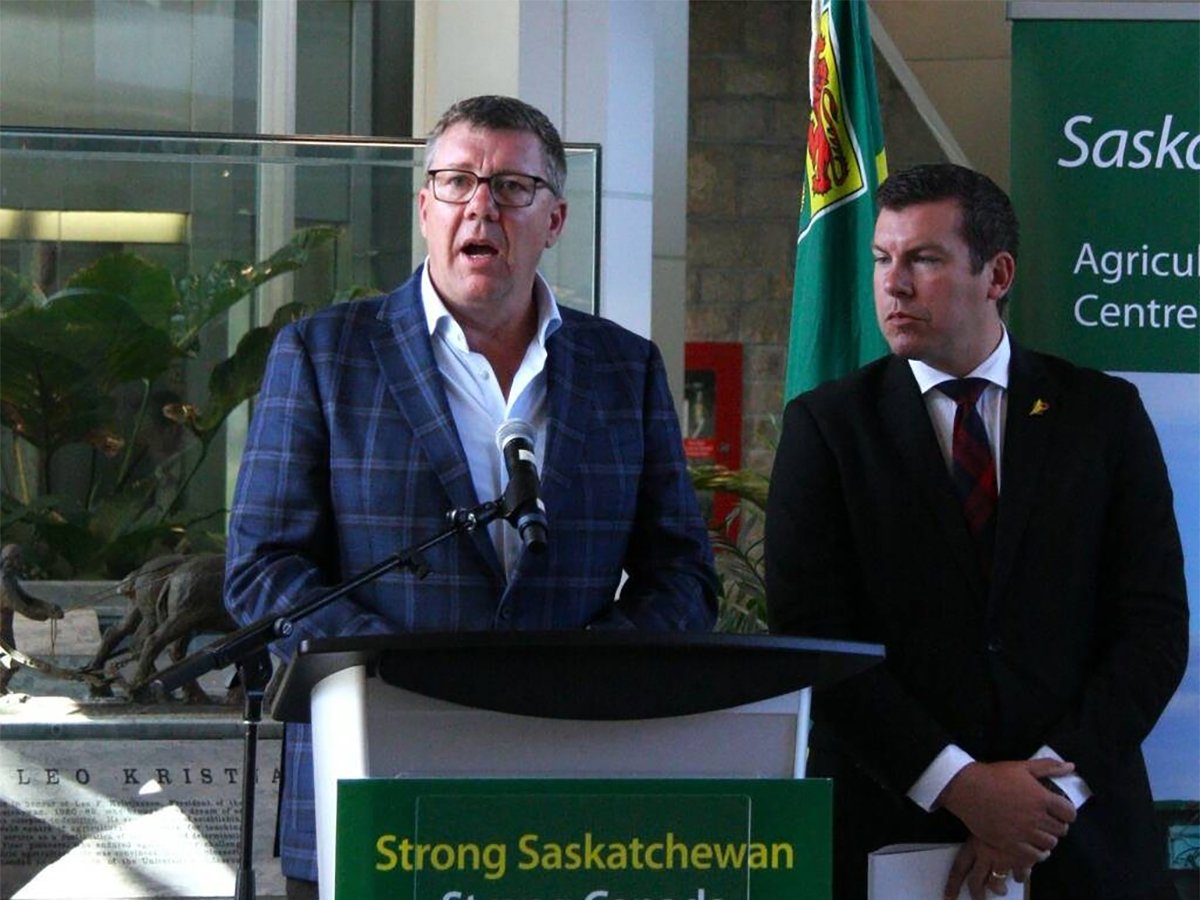The Farmer Rail Car Coalition is about business, not politics, says Sinclair Harrison.
The president of the farm group that wants to buy the federal government’s fleet of grain hopper cars recently found himself publicly defending the organization’s motives.
He rejected a suggestion that the organization wants to promote a political or social agenda through its proposed purchase. And he insisted that the coalition is basing its decisions on commercial considerations.
“We’re going to make this decision with our heads and not our hearts,” he said.
Read Also

Canada had constructive talks with China over canola dispute, Ottawa says
Ottawa / Reuters — Canadian officials had constructive talks with their Chinese counterparts about Beijing’s duties on canola during a…
“It has to be a good business decision for western Canadian farmers.”
Harrison made his comments during a panel discussion held as part of the Saskatchewan Canola Growers Association’s annual meeting.
Fellow panelist Paul Earl, policy manager with the Western Canadian Wheat Growers Association, questioned the wisdom of farmers buying the 13,000 rail cars.
“Farmer ownership is going to be a very, very big burden unless it’s absolutely, totally and completely run on a commercial basis,” he said while also expressing skepticism whether that would be the case.
Earl said he fears the coalition will be more interested in promoting certain political and social views than operating as a commercial entity.
At one point he said that based on the coalition’s membership, it seems to be “firmly positioned between the left and the centre.”
During a question period following the panel, Harrison took issue with Earl’s criticisms.
The coalition’s members represent a wide range of political views, he said, but they all agree that owning the hopper car fleet would put more money into farmers’ pockets.
And he said the coalition’s formal business plan, which runs to more than 100 pages, lays out in great detail the commercial and financial rationale for farmers to own rail cars.
“If you can find one thing in there where it’s a social document and not a business document, that’s news to me,” he said.
The coalition has submitted its business and financial plans to the federal government, which is expected to announce its plans for the hopper cars in February, six years after first announcing its intentions to sell the fleet.
It wants the government to sell the cars to farmers for one dollar. The coalition would operate as a non-profit leasing company and distribute cars to any shipper for the movement of western grain. The cars would be leased for alternative service in years of low grain shipments.
Aside from giving farmers control over an important part of the grain handling and transportation system, the coalition says its plan would save farmers millions of dollars a year.
The biggest saving would come from reduced maintenance costs. The rail revenue cap now provides the railways with roughly $4,500 per car per year for maintenance, but the coalition says the actual cost is more like $1,200 to $1,500.
An annual saving of $1,300 per car for 13,000 cars works out to a $39 million reduction in the revenue cap. If the coalition was to take over maintenance on all 19,000 hopper cars in the grain fleet, including those owned by provincial governments and the Canadian Wheat Board, the savings would be $57 million.
“If there is one figure you take out of this room today, it should be how much you are paying to maintain the cars and how much farmers can save,” Harrison told the crowd.
Earl questioned whether those savings would automatically come out of the revenue cap, but Harrison said he had been assured by the Canadian Transportation Agency that would be the case.
Earl also doubted whether owning the cars would give farmers the ability to change the system, saying that rail cars are rarely the problem in instances of poor service.
Harrison said anyone who doubts the benefits of farmers owning the cars should talk to potash, sulfur and coal shippers who own their own rail cars.
Panelist James Nolan, an agricultural economist at the University of Saskatchewan, said that owning the cars would pay off for farmers only if the federal government introduced measures to encourage more competition between the railways, specifically through the introduction of open access to rail lines.
He said farmers should hold off making a commitment on buying the cars until Ottawa makes its intentions known in that area.














